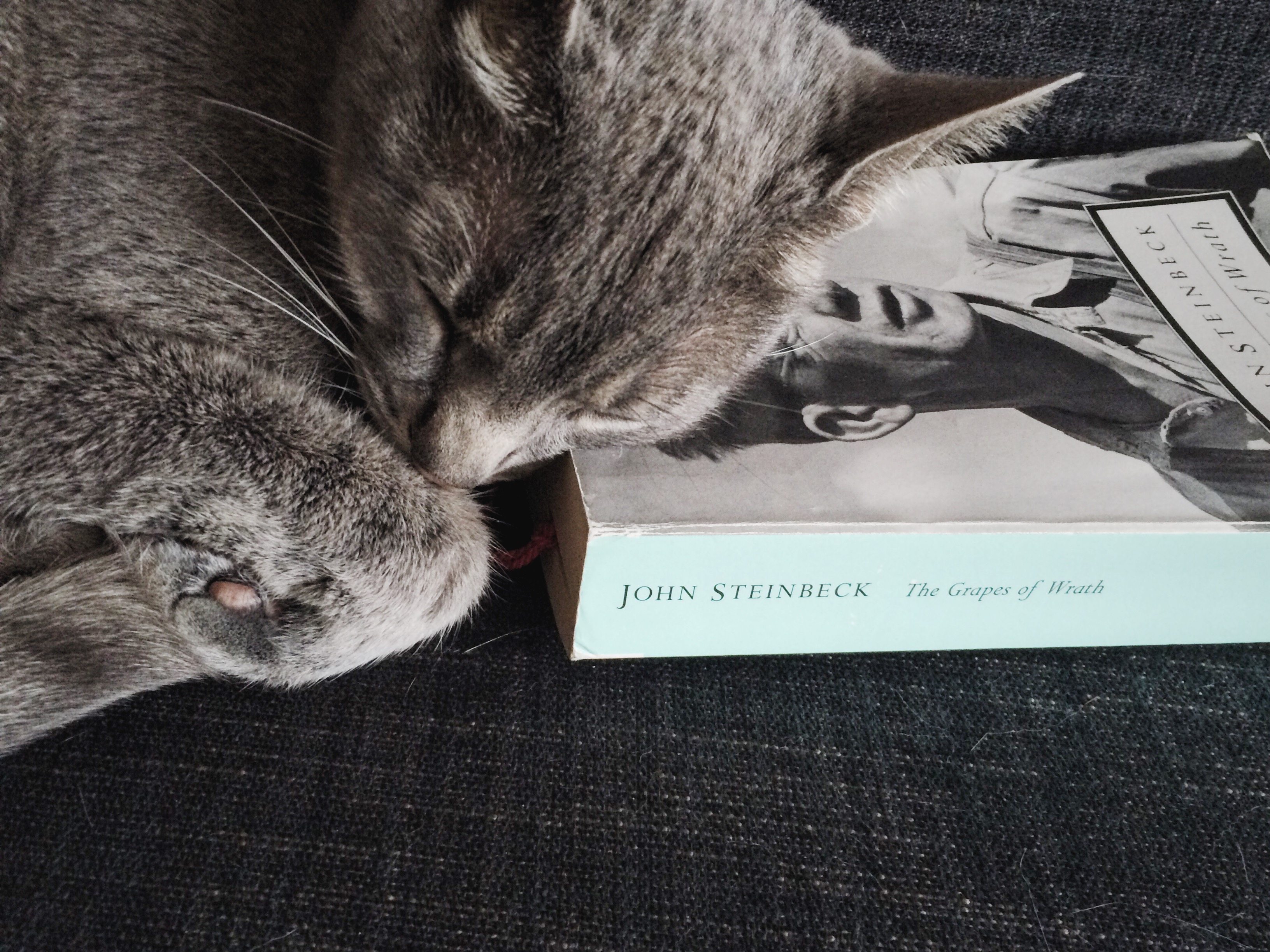Just finished
The Grapes of Wrath by John Steinbeck
It feels a little silly to attempt to say anything at all about such a classic piece of literature. I’m happy to report that I really enjoyed reading it, and I’m glad I hung onto it all these years after 11th grade English. The dialogue is written dialectally, which was certainly distracting at times, but ultimately helped solidify the time and place, as well as the status of the Joad family. Like every great piece of literature, the politics of this book are still, sadly, extremely relevant today. I was especially struck by the sympathetic way Steinbeck was able to portray the totally-fucked-ness that so often comes as a result of the wicked combination of desperation, ignorance and poverty. The Joads aren’t stupid, but they are forced into one bad choice after another simply because they can’t afford to be skeptical. The breastfeeding scene at the end is still just as weird as I remembered it, with Rose of Sharon serving as one of the canonical women-as-walking-uterus tropes. Still, for having been published only 19 years after women gained the right to vote, I have to hand it to Steinbeck for giving the women (especially Ma) important, literally life-saving, roles.
Met de wind mee naar de zee by Guus Kuijer
Polleke is having a tough time in book four of the five-part series and I’m nervous about approaching the final installment. In part because I’ve enjoyed it so much and I’m not quite ready to let this series go, but also because I’m nervously anticipating a bittersweet and coldly pragmatic wrapping-up of Polleke’s life, sure to include plenty of death and heartbreak.
Currently reading
Kindred by Octavia E. Butler
At first I had some ambivalent feelings about Kindred, written by Butler in 1979. The premise is brilliant – black woman married to a white man in the 70s is transported back in time to the early 19th century onto a plantation where she has to protect the white son of a brutal slave-owner in order to insure her own ancestral line. The prose is a little stilted, though. In this book at least, Butler has a no-frills kind of writing style that gives the events as they happen, with only the slightest nod to the characters’ reactions to those events. Particularly in a bizarre world where time-travel happens, it’s important to me to see how someone’s brain is able to accept – or not – the impossibility of magic. As I’ve read more, though, I’ve come to appreciate the main character’s tough-as-nails personality. How she feels about the situation is at the bottom of her list of priorities, and the book pulls no punches when it comes to facing the real brutality of what life as a slave – or as a black woman assumed to be a slave – is like. Ultimately, it doesn’t matter whether a black body is free, owned, escaped or displaced in space and time; being black is a danger unto itself. Watching Dana navigate her worlds, trying to stay safe and keep her dignity while facing the necessity of having to protect and educate white men – her husband included – is powerful. At one point her modern day white husband gets pulled into the past along with her, and those dynamics are some of the most interesting I’ve read so far. The world of plantation life in the 1820s impacts them very differently, and Dana’s fears about the distance between her and her husband as a result of that displacement are terrifying and captivating. I’m eager to read on, and to discover more of Butler’s work.
On the horizon
The Family Fang by Kevin Wilson
I got this book mixed up with The Wangs vs. the World and was disappointed to discover that, far from being a story about a Chinese immigrant family, The Family Fang is a book that’s been made into a movie starring Jason Bateman. Sigh.
